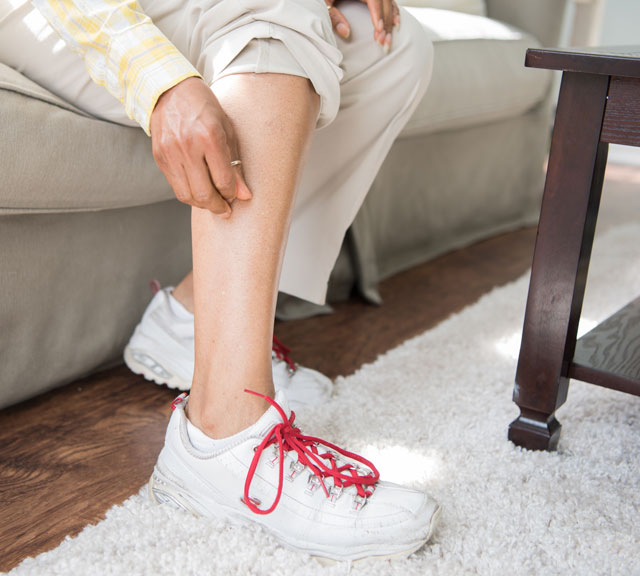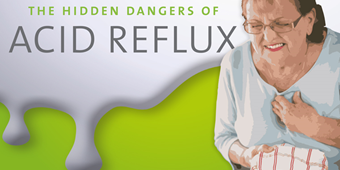How to Live Well with Ulcerative Colitis

Find Your Perfect Match
Answer a few questions and we'll provide you with a list of primary care providers that best fit your needs.
Ulcerative colitis (UC) is a type of inflammatory bowel disease (IBD). Other common IBDs include Crohn's disease and microscopic colitis. Ulcerative colitis causes sores (ulcers) and swelling, or inflammation, along the inner lining of your rectum and colon (large intestine).
UC is a chronic, or long-term, condition that typically begins between the ages of 15 and 30, though sometimes children and older people can get it. It affects men and women in about equal numbers.
The causes of UC are not well understood. One cause may be an abnormal immune response in the intestine, when the immune system mistakenly attacks the lining of the large intestine, leading to inflammation. There does seem to be a genetic component, as UC is more common among close relatives of people with the disease (though most UC patients do not pass it on to their children). It also shows up with greater frequency in certain population groups, including people living in northern climates and people of Jewish descent.
While there's no known cure for UC, treatments are available to help you manage symptoms and keep up your daily activities.
What Are the Symptoms of Ulcerative Colitis?
Common symptoms of UC include:
- Diarrhea with blood or pus
- An urgent need to have a bowel movement
- The feeling that your bowel movement is incomplete
- Abdominal cramps
- Feeling tired
- Intermittent rectal pain
In cases of more severe inflammation, a person with UC can also experience:
- Weight loss and loss of appetite
- Dehydration
- Severe abdominal pain
- Joint pain
- Certain rashes
About half the people who have UC have mild symptoms.
How Is Ulcerative Colitis Diagnosed?
Diagnosis begins with you giving your health care provider a complete description of your symptoms, along with your medical and family history. That’s followed by a physical examination and, typically, blood tests. In addition, other tests can include:
- Stool culture: Looking for any abnormal bacteria in your colon that might be causing diarrhea or other problems
- Endoscopy: Using a tiny camera on the end of a tube, a doctor will closely examine the upper parts of your digestive tract, looking for trouble spots
- Colonoscopy: Again using a tiny camera on the end of a tube, a doctor will examine the inside of your colon looking for sores and inflammation
- Biopsy: A doctor takes out a small tissue sample or cells from the lining of your colon for examination under a microscope
- Lower GI (gastrointestinal) series: This is an X-ray of your rectum and the lower parts of your digestive tract looking for blockages or other problems
Treating Ulcerative Colitis

While there's no known cure for UC, treatments are available to help you manage symptoms and keep up your daily activities. Your doctor will create a plan specific to your condition, taking into account things like your age and overall health, the severity of your case, and your own treatment preferences. Your treatment plan could include:
- Medication: The goal is to manage your discomfort, relieve your symptoms and improve your quality of life. Medicines could include anti-inflammatories, corticosteroids, drugs to moderate your immune system, biologic agents to block chemicals in your body that cause inflammation, antibiotics and probiotics. Be sure to ask your doctor about the benefits and drawbacks of each type of medical treatment you discuss.
- Hospitalization: If you're having severe symptoms, you may need to go to the hospital in order to stop your diarrhea, get the nutrition you need, and replace blood and other body fluids you may have lost.
- Surgery: Most people with UC don't need surgery, but in extreme cases, as when you're bleeding heavily or have a hole (perforation) in your colon, it might be necessary for doctors to remove your colon.
What Can You Do?
Coping with ulcerative colitis can be a challenge, but you can still lead a full and fulfilling life. The key is to keep your symptoms under control and plan ahead. Don't let your UC keep you from getting out with friends and enjoying yourself. Here are a few more specific pointers that can help you stay in control:
- Instead of eating three big meals every day, eat more smaller meals.
- Avoid problem foods. Keep track of how certain foods affect you, and stick to the ones that work for you.
- If you're capable, get some exercise every day.
- Work on reducing your stress, possibly taking a class or stress-management workshop.
- Plan ahead for how you might handle a flare-up while traveling.
- Consider joining a support group. Sometimes just being able to talk with people who have faced the same UC challenges can be a tremendous help.
Find Your Perfect Match
Answer a few questions and we'll provide you with a list of primary care providers that best fit your needs.
Source: American College of Gastroenterology; National Institute of Diabetes and Digestive and Kidney Diseases; Management of Ulcer




